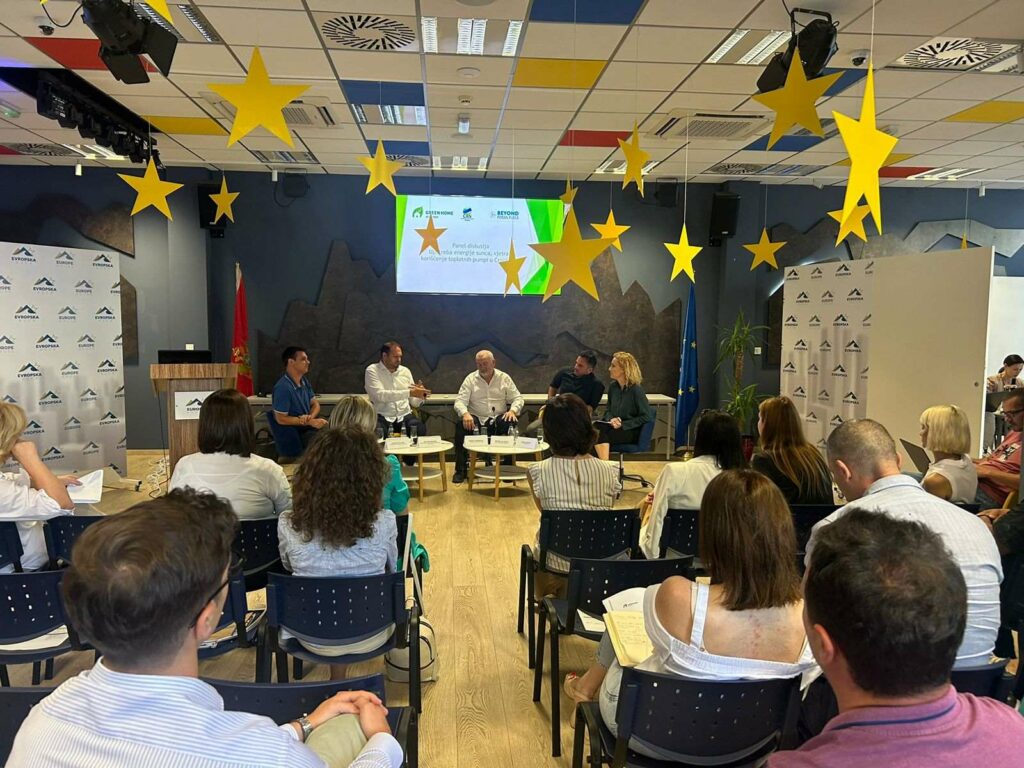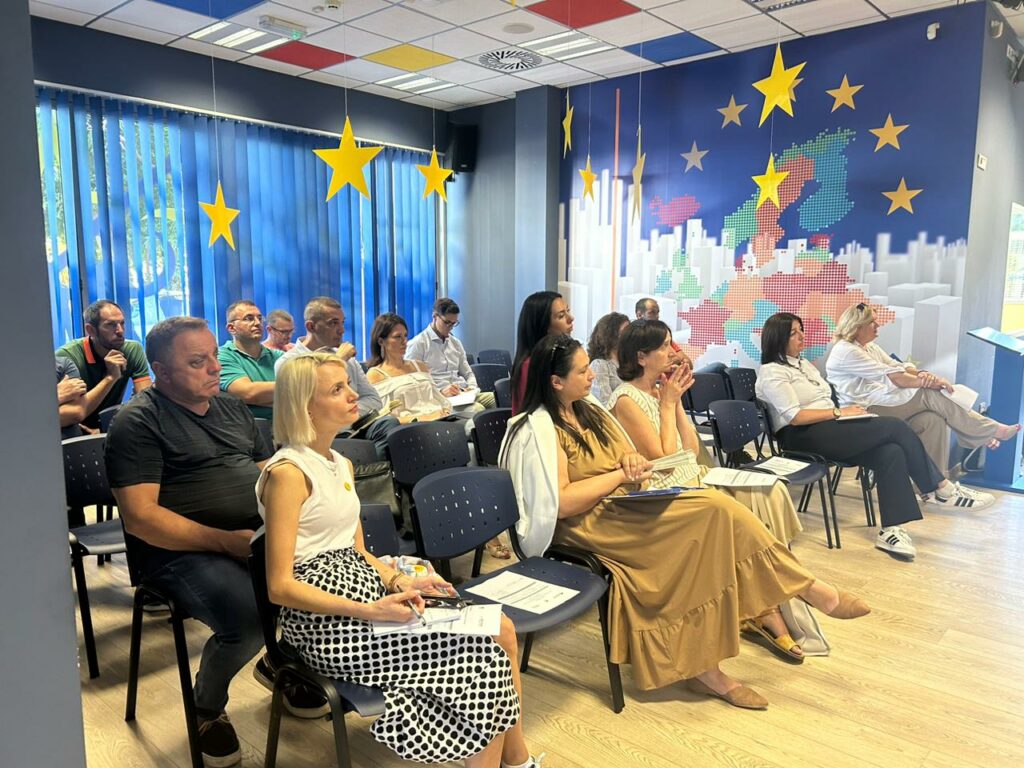Montenegro has significant potential in renewable energy sources, but this potential is being underutilised. This was concluded at the panel discussion organised by the NGO Green Home at Europe House in Podgorica.
According to the energy balance for this year, electricity production will be as follows: 51.2% from hydroelectric power plants, 38.55% from thermal power plants, 9.11% from wind power plants, and 1.14% from solar power plants. Despite the great potential for solar power, with 2,000 hours of sunshine measured annually in most of the territory, and more than 2,500 hours measured in the coastal area, the contribution of electricity production from solar panels, at only 1.14%, is exceptionally low.

High installation costs, as well as insufficient awareness among citizens about the long-term profitability of such investments, are the main obstacles that continue to keep the utilisation of these energy sources low.
Dr. Tomi Medved, Head of the Laboratory for Energy Strategy at the Faculty of Electrical Engineering at the University of Ljubljana, presented the green transformation of Slovenia, along with good examples from practice.

Medved also pointed out the problems that Slovenia faced, which Montenegro should try to avoid.
The current utilisation of the potential for electricity production from renewable energy sources was also discussed by Aleksa Ćulafić from the Ministry of Capital Investments, Ranko Vukmirović, Secretary of the Committee for Energy and Mining of the Chamber of Commerce of Montenegro, and Željko Pekić from the EPCG.
Serious efforts are needed in order to create conditions for the development of energy production from renewable sources, and to define a strategic and planning framework for this area as an integral part of the National Energy and Climate Plan.
Technical and technological solutions exist, and they are constantly improving, but Montenegro is lacking in the implementation of these solutions, which was a concept also emphasised at the panel.
The panel discussion was organised as part of the project “Let’s Talk About People-Friendly Renewable Energy Sources” that is being implemented by the NGO Green Home with the support of the European Climate Action Network (CAN Europe).
